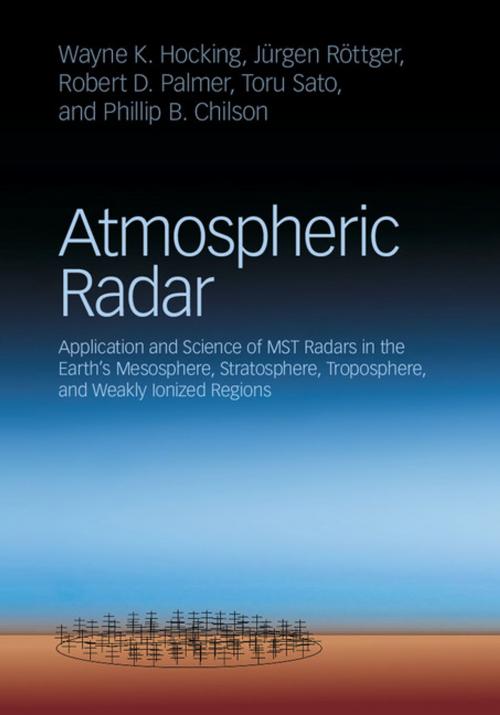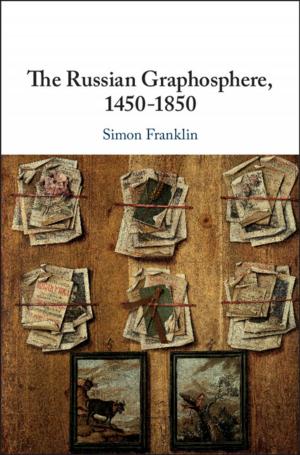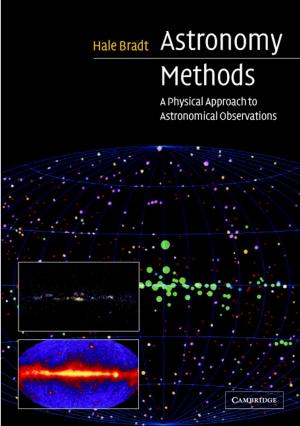Atmospheric Radar
Application and Science of MST Radars in the Earth's Mesosphere, Stratosphere, Troposphere, and Weakly Ionized Regions
Nonfiction, Science & Nature, Technology, Microwaves, Electronics| Author: | Wayne K. Hocking, Jürgen Röttger, Robert D. Palmer, Toru Sato, Phillip B. Chilson | ISBN: | 9781316727294 |
| Publisher: | Cambridge University Press | Publication: | November 17, 2016 |
| Imprint: | Cambridge University Press | Language: | English |
| Author: | Wayne K. Hocking, Jürgen Röttger, Robert D. Palmer, Toru Sato, Phillip B. Chilson |
| ISBN: | 9781316727294 |
| Publisher: | Cambridge University Press |
| Publication: | November 17, 2016 |
| Imprint: | Cambridge University Press |
| Language: | English |
Richly illustrated, and including both an extensive bibliography and index, this indispensable guide brings together the theory, design, and applications of atmospheric radar. It explains the basic thermodynamics and dynamics of the troposphere, stratosphere, and mesosphere, and discusses the physical and engineering principles behind one of the key tools used to study these regions - MST radars. Key topics covered include antennas, signal propagation, and signal processing techniques. A wide range of practical applications are discussed, including the use of atmospheric radar to study wind profiles, tropospheric temperature, and gravity waves. A detailed overview of radar designs provides a wealth of knowledge and tools, providing readers with a strong basis for building their own instruments. This is an essential resource for graduate students and researchers working in the areas of radar engineering, remote sensing, meteorology, and atmospheric physics, as well as for practitioners in the radar industry.
Richly illustrated, and including both an extensive bibliography and index, this indispensable guide brings together the theory, design, and applications of atmospheric radar. It explains the basic thermodynamics and dynamics of the troposphere, stratosphere, and mesosphere, and discusses the physical and engineering principles behind one of the key tools used to study these regions - MST radars. Key topics covered include antennas, signal propagation, and signal processing techniques. A wide range of practical applications are discussed, including the use of atmospheric radar to study wind profiles, tropospheric temperature, and gravity waves. A detailed overview of radar designs provides a wealth of knowledge and tools, providing readers with a strong basis for building their own instruments. This is an essential resource for graduate students and researchers working in the areas of radar engineering, remote sensing, meteorology, and atmospheric physics, as well as for practitioners in the radar industry.















